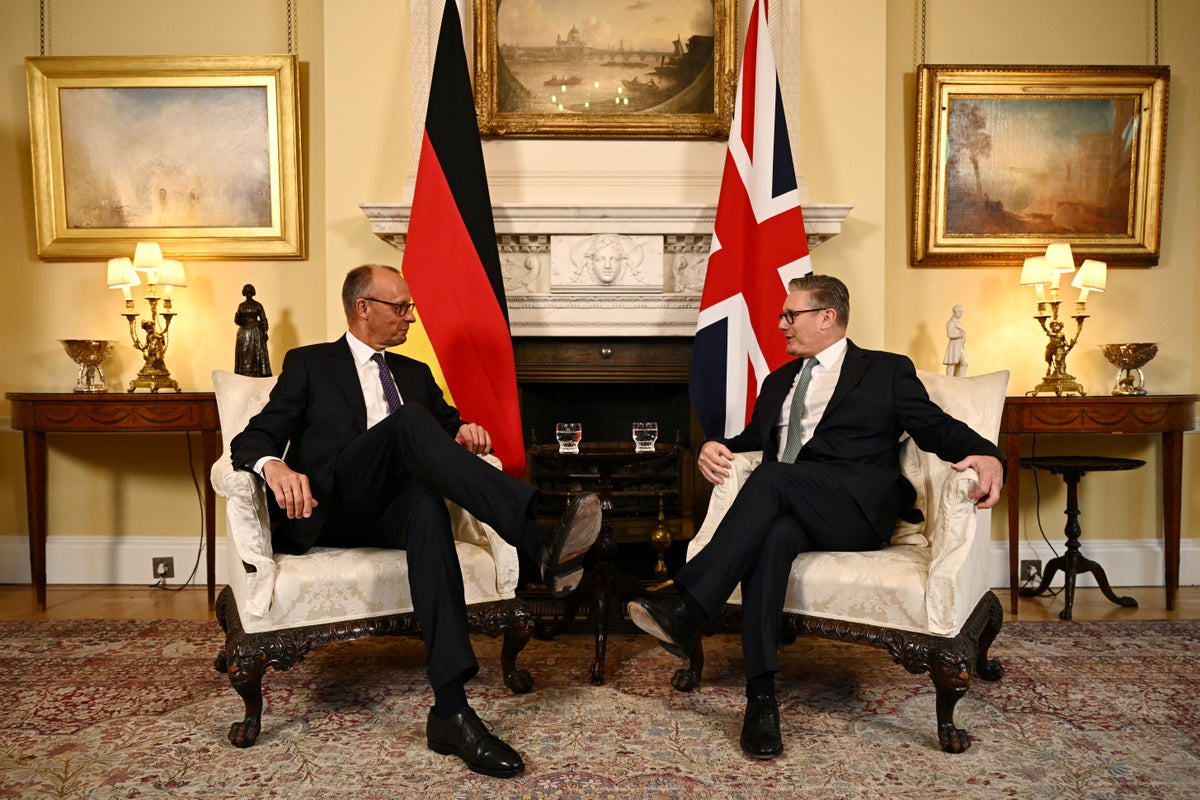German Chancellor Friedrich Merz has said he personally “deplores” Brexit as he signed a new co-operation deal between his country and Britain.
At a press conference alongside Sir Keir Starmer, Mr Merz, speaking through a translator, said: “The United Kingdom, and I personally deplore this deeply, decided to leave the European Union.”
He added that countries should respond to the major challenges of our time “together”.
Mr Merz, a committed supporter of the European Union, once described himself as “truly European”.
A recent poll shows that most people in Germany, and three other large EU countries, would welcome the UK back into the bloc.
The UK and Germany have agreed to collaborate on migration, trade and security in the biggest treaty between the two countries since the end of the Second World War.
Sir Keir and the German leader also agreed to “work ever more closely” on a range of issues.
Under the deal, Germany will close a loophole to allow police to seize small boats being used by migrants to cross the Channel.
As part of moves designed to cut post-Brexit red tape, German school trips to the UK will also become visa-free by the end of the year, while British visitors to Germany will be able to use its passport e-gates by the end of August.
The fast-track will initially be for frequent travellers but will eventually be extended to all British visitors, as part of Sir Keir’s wider Brexit ‘reset’ with the EU.
Sir Keir described the document, known as the Kensington Treaty, as “very special”.
The Labour leader said it was “evidence of the closeness of our relationship as it stands today” as well as a “statement of intent, a statement of our ambition to work ever more closely together”.
A recent poll showed that most people in the four largest countries in the EU, which includes Germany, would welcome the UK back into the bloc – but not on the same terms it had before.
At the same time most Britons are in favour of rejoining, the YouGov survey of six western European nations found, but only if they can keep the opt-outs the UK previously had, such as remaining outside the Schengen zone and keeping their own currency.
More follows …

